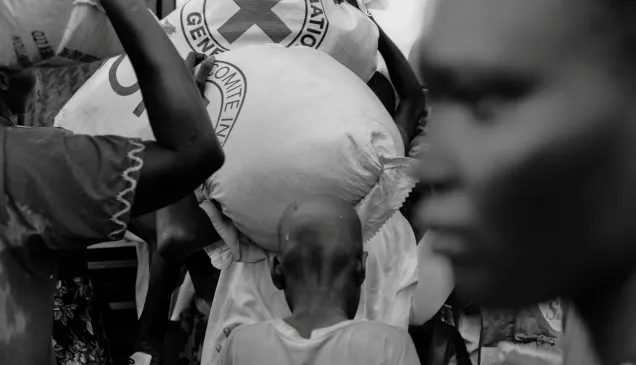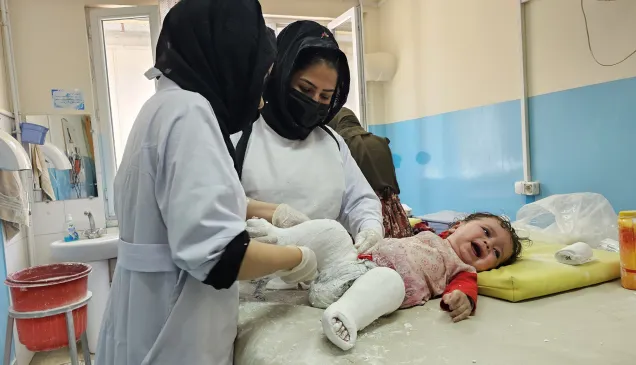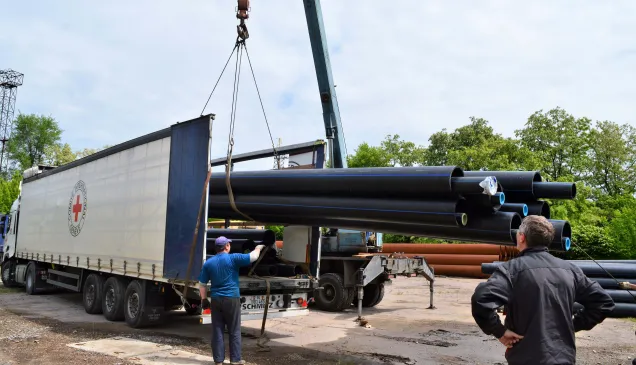Five underfunded ICRC operations
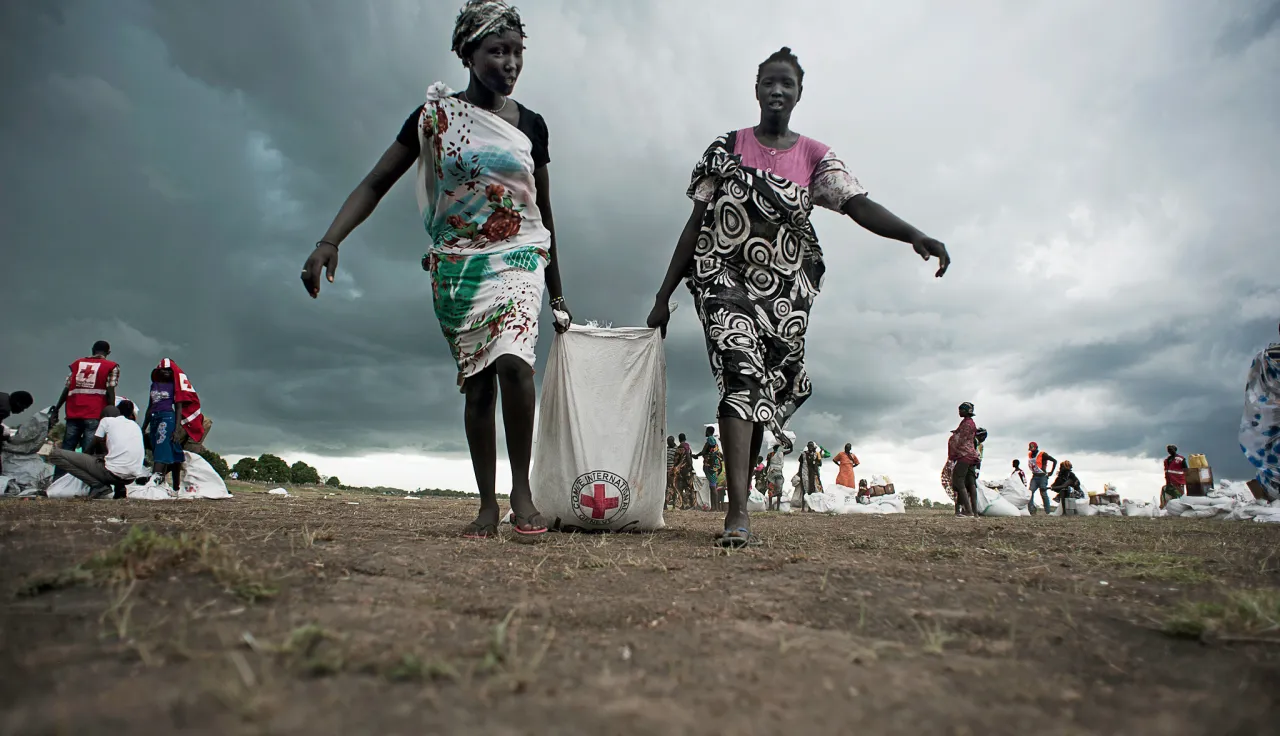
This year, even our efforts to help people in the world's major warzones are underfunded. That's why we're appealing for additional funding, so that we can help people suffering the effects of war and armed conflict in South Sudan, Afghanistan, Nigeria, Ukraine and Syria.
The needs are great. The ICRC budget for 2015 was correspondingly large. The infographic below shows how much was still needed on 1 September, but over the last three weeks the response from our major donors has been truly heart-warming. You have reduced the shortfall significantly, and we thank you for that, on behalf of the millions who need our help. But as our head of operations Dominik Stillhart explained today, there is still a long way to go.
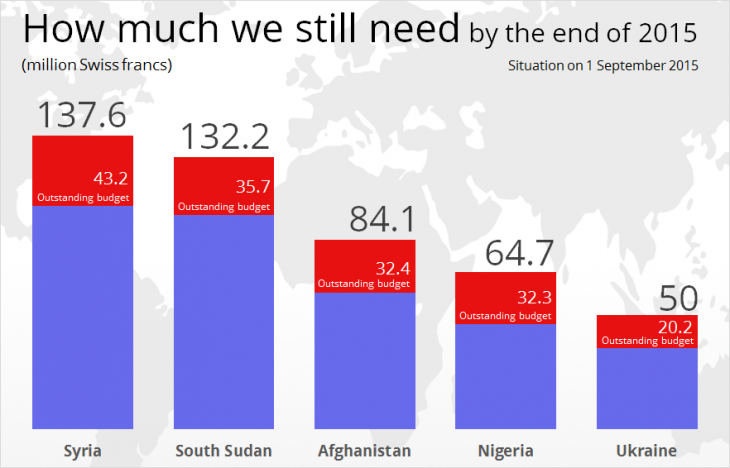
What we spent our budget on between January and June 2015
| Syria | |
|
|
The ICRC has provided clean drinking water for 16 million people, which is nearly 90 per cent of the Syrian population that has not fled the country. |
| South Sudan | |
|
|
The ICRC has delivered food to 234,000 people, many of them in remote and flooded areas where the food had to be dropped by plane from the sky. |
| Nigeria | |
|
|
The ICRC has supplied food and other aid to 325,000 displaced people. |
| Ukraine | |
|
|
1.2 million people in eastern Ukraine have benefitted from reconstruction work carried out using ICRC-supplied materials. |
| Afghanistan | |
|
|
The ICRC has helped 64,800 people at seven physical rehabilitation centres. |
The ICRC is providing lifesaving help and hope to extremely vulnerable people suffering from some of the world's most devastating conflicts: Yemen, South Sudan, Syria, Iraq, Lake Chad, Afghanistan and Ukraine.
This video provides a glimpse of how we're able to help these people stay, survive and eventually rebuild their lives in their war-torn countries.






